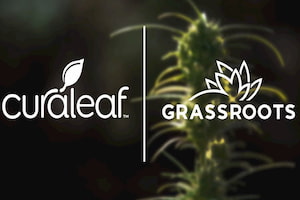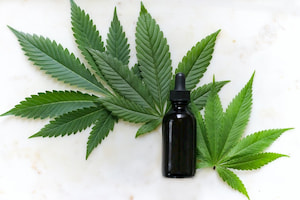
Oregon cannabis dispensaries set a new single-month record in May with approximately $103 million in sales of marijuana. This was the first time ever that the state has topped $100 million in monthly cannabis sales. What could the boom in retail marijuana sales mean for cannabis operators in Oregon? And could it provide savvy investors with new opportunities to get involved in the Oregon cannabis market? Read on to learn more.
Oregon Cannabis Sales Top $100 Million in Single Month
According to data from the Oregon Liquor Control Commission, retail marijuana stores in Oregon reported total sales of more than $103 million in May 2020. (May is the most recent month for which sales records have been made available to the public.) While this was the third straight month that Oregon set a new record for cannabis sales, it was the first time that retail cannabis sales have exceeded $100 million in a single month.
When compared to retail marijuana sales in 2019, the success of Oregon dispensaries so far in 2020 is staggering. The total of $103 million generated by Oregon dispensary sales of recreational cannabis and medical cannabis in May 2020 represents an increase of roughly 60% over total cannabis sales in May 2019. Moreover, these gains are not mere anomalies: year-over-year sales of marijuana in Oregon increased by 37% in March and 44% in April. Through the first five (5) months of 2020, Oregon retail pot shops have sold more than $415 million worth of product – a 40% increase when compared to the first five (5) months of the previous year.
Oregon Dispensaries Adjust to Changing Conditions Caused by Coronavirus Pandemic
Oregon dispensaries have seen a surge in retail cannabis sales even as most other retail businesses in the state struggled to adjust to coronavirus-related restrictions. In fact, the cannabis industry has thrived during the COVID-19 pandemic, in part because states like Oregon declared that cannabis dispensaries are “essential businesses” that should be exempt from shutdown orders.
Oregon dispensaries were allowed to remain open during the coronavirus pandemic with certain restrictions in place, such as social distancing and limits on the number of people allowed inside stores at once. Oregon retail marijuana shops were also able to take advantage of state laws that allow for delivery of marijuana: online orders and home delivery accounted for nearly $1.4 million in total sales in May 2020.
What Are the Effects of Legal Cannabis Sales on Oregon State Revenues?
Oregon lawmakers have expressed concerns about the state budget, especially in light of the hit that the state has taken in terms of decreased sales tax revenues during the coronavirus pandemic. This is because most businesses struggled when shutdown orders were put in place, and many of these businesses have continued to struggle even after the shutdown orders were lifted. The downturn in overall retail sales has had a devastating effect on Oregon state revenues.
One industry that has not suffered during the COVID-19 pandemic is the legal cannabis industry. This has provided a boost to the Oregon budget by filling the state with much-needed sales tax revenues. Oregon imposes a 17% tax on legal sales of marijuana. Additionally, this tax number is the same for both recreational marijuana and medical marijuana.
Economists enlisted by the state government to study and analyze the effects of the legalization of marijuana on the economy have been taking a close look at what has happened during the COVID-19 pandemic. These economists believe that several factors are influencing the bump in tax revenues generated by retail cannabis sales:
- The underlying demand for marijuana (and alcohol) is up as more people are stuck at home and looking for some form of relief.
- More cannabis product categories and varieties are available to consumers.
- Greater demand for marijuana products such as concentrates and edibles has led to higher prices. Thus far, the higher prices have not discouraged consumers from continuing to purchase cannabis from dispensaries.
Contact Scythian to Learn About Cannabis Real Estate
Oregon is not the only state with strong cannabis sales so far in 2020. Many other states where cannabis use is legal, including Arkansas, Colorado, and Illinois, have also seen a surge in retail cannabis sales.
Scythian Real Estate is the full-service real estate partner of sophisticated cannabis companies throughout the U.S. and already has a strong footprint in several states where cannabis is legal. For more information about cannabis real estate, email Scythian now.
PLEASE NOTE THAT THIS BLOG IS NEITHER AN OFFER TO SELL NOR A SOLICITATION OF AN OFFER TO BUY SECURITIES IN SCYTHIAN REAL ESTATE FUND.









